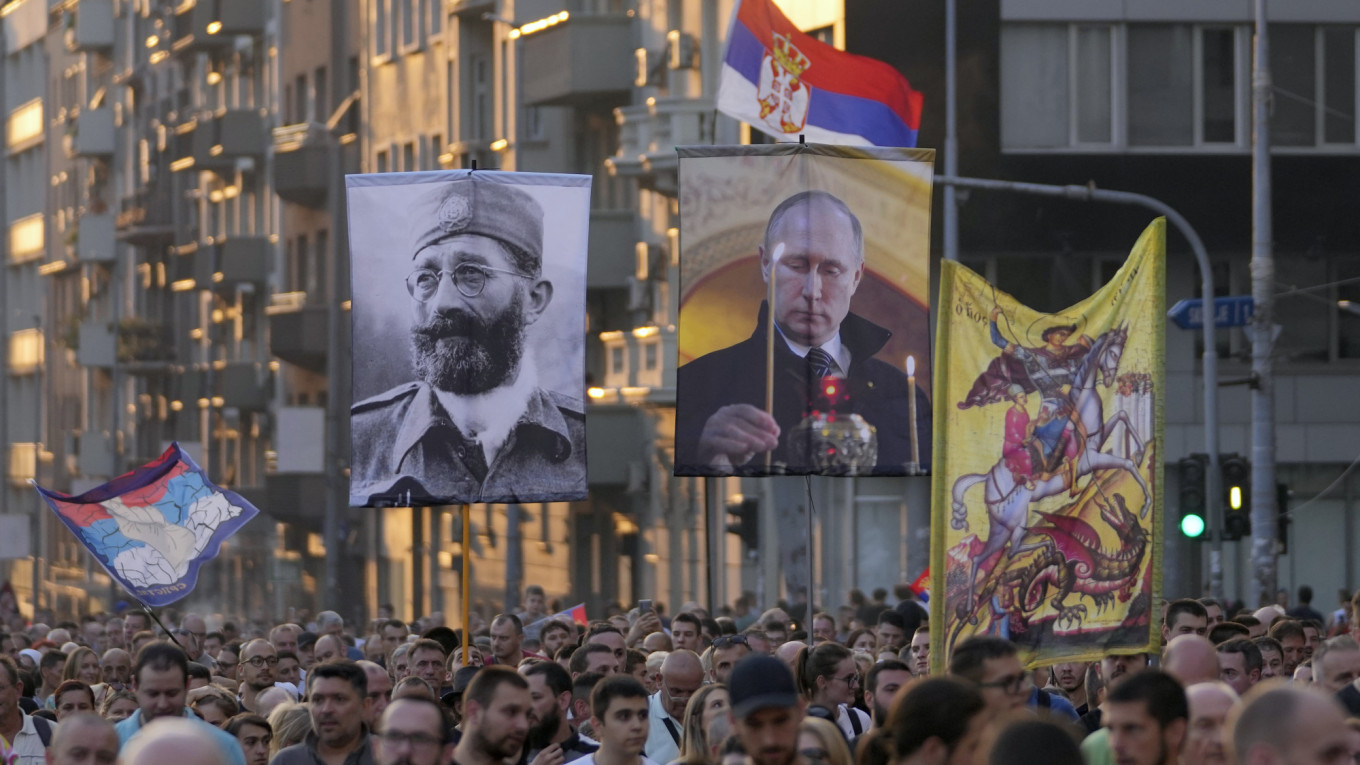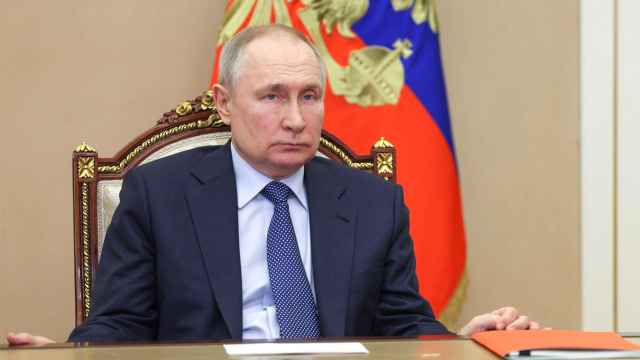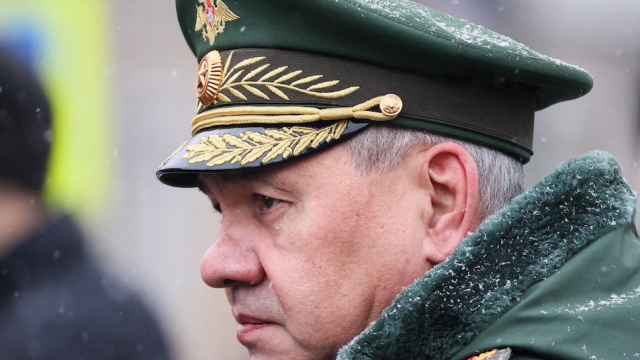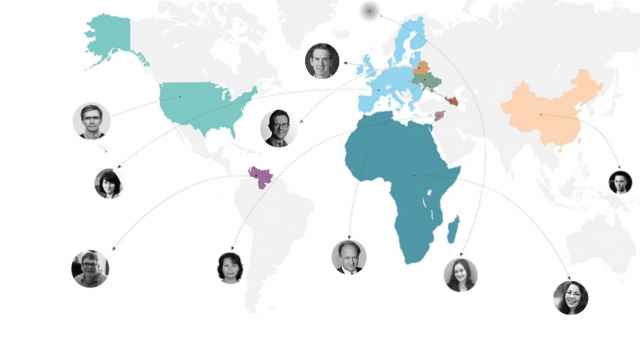Russia’s invasion of Ukraine has significantly extended the range of foreign policy instruments that the Kremlin deems acceptable for use. With the Russian army bombing Ukrainian cities to rubble and intentionally leaving people without heating and electricity in freezing temperatures, Moscow can hardly be expected to exercise humanity on other international issues. The Kremlin is grimly prepared to disregard the costs of its most destructive actions provided they further its cause in Ukraine, yet Russia is strangely quiet in the Western Balkans. Why?
The Western Balkans are often considered an easy target for Moscow. Close to the European Union and eternally unstable, the region also retains significant ties with Russia. This combination would seem to offer the Kremlin a convenient opportunity to stir trouble there in order to distract the West’s attention and resources away from helping Ukraine.
Nine months into the war, however, Moscow appears to be in no rush to seize that opportunity. Amid the new upsurge in tensions in most of the Balkan states, Russia has remained largely on the sidelines, sticking to its previous tactics and narratives, as if 2022 had not upended the geopolitics and geoeconomics of Europe. At first glance, the Kremlin’s caution may seem counterintuitive, but it looks less so upon closer inspection of the longstanding constraints on Russia’s policy in the region, which have tightened further due to the war.
The contrast between Moscow’s aggression in Ukraine and restraint in the Balkans stems from its strong dependency on Balkan politicians. Russia’s direct presence in the region has always been limited, but its visibility and influence have been eagerly boosted by numerous local actors. Their agenda differed little from Moscow’s: both strived to stall pro-European reforms, capitalized on anti-Western sentiment, and fed into interethnic acrimonies. These common interests made them natural partners who exaggerated their affinity to bolster each other’s clout.
Still, no matter how diligently some Balkan politicians painted themselves as Russia’s stalwarts, they remained distinctly autonomous in their actions. Moscow was welcome to pretend to be in charge when its priorities dovetailed with those of its local allies, but it was hardly in a position to make unilateral changes to the joint agenda. Locals may have played the role of reckless pro-Russian radicals, but in reality their radicalism was mostly feigned and aimed solely at resisting any change that might threaten their power and privileges.
Meaningful reforms and the final settlement of Balkan conflicts constituted a more practicable threat, but both Russia and its regional allies realized that excessive brinkmanship may get them in trouble by prompting a potent response from the West. Thus, they clung to the status quo through the moderate application of their radicalism: to prevent a positive change, rather than prompting a negative one.
Even if the war has altered the calculus fueling Moscow’s appetite for destabilization, this is not the case for its key Balkan associates. Serbian President Aleksandar Vucic, Bosnian Serb leader Milorad Dodik, and pro-Russian politicians in Montenegro still value their current privileged status and have no desire to jeopardize it for the sake of Moscow’s geopolitical adventurism. If the Kremlin risks trying to force their hand, the attempt is likely to backfire, with locals simply defying any pressure from Moscow.
Russia’s international reputation is already in tatters. The last thing it needs now is another humiliating blow that would expose how little sway it actually has over Balkan affairs as soon as its priorities diverge from those of its associates. Little wonder, therefore, that Moscow prefers to adhere to the old rules of its regional alliances, even if that stance does not fully correspond to its new belligerent agenda.
The war has also altered the decision-making process in Moscow, undermining its ability to conduct an active foreign policy on multiple fronts simultaneously. President Vladimir Putin has grown even more reclusive and reluctant to share his plans with subordinates or delegate the initiative to them. He has also become erratic and unpredictable in his decisions, leaving the Russian state apparatus clueless about what the president’s next step might be.
This reality largely precludes autonomous action at the lower levels of the Russian foreign policy establishment, including the part responsible for the Western Balkans. Moscow’s Balkan specialists fear that unsolicited new undertakings may clash with the president’s expectations and land them in trouble. They prefer to play safe and follow tried and tested instructions, no matter how outdated the latter may look now. New directives, meanwhile, are unlikely to materialize any time soon, as the Russian president appears to be fully consumed with the invasion of Ukraine.
As a result, the key driver of current Russian policy in the Western Balkans is the growing apprehension that the war in Ukraine may prompt the West to apply quick solutions to the Balkan conflicts and eliminate Russia from the region altogether. A major setback in Serbia or Bosnia-Herzegovina would draw Putin’s attention to Balkan affairs, exposing those in charge of the region to the president’s rage. To avoid that, they eschew sudden moves and hope that Russia’s regional partners will still be able to withstand growing Western pressure and protect the status quo.
To this effect, Russia continues to reiterate its full support for Vucic’s unrelenting stance on Kosovo and has extended a well-timed invitation to Dodik to the Kremlin to assist in his reelection as the president of Republika Srpska. But Moscow is clearly taking a backseat in the region and leaving it to the locals to bear the brunt of resisting the West.
Given the arbitrariness of Putin’s many recent decisions, there can be no guarantee that at some point he will not come up with a new geopolitical scheme targeting the West’s vulnerabilities in the Western Balkans. But so far there are more indications of an inertia scenario, with Russia relying on the obstinacy of local politicians to help it save face in the region.
This article was originally published by the Carnegie Endowment For International Peace with the weekly newspaper NiN (in Serbian).
A Message from The Moscow Times:
Dear readers,
We are facing unprecedented challenges. Russia's Prosecutor General's Office has designated The Moscow Times as an "undesirable" organization, criminalizing our work and putting our staff at risk of prosecution. This follows our earlier unjust labeling as a "foreign agent."
These actions are direct attempts to silence independent journalism in Russia. The authorities claim our work "discredits the decisions of the Russian leadership." We see things differently: we strive to provide accurate, unbiased reporting on Russia.
We, the journalists of The Moscow Times, refuse to be silenced. But to continue our work, we need your help.
Your support, no matter how small, makes a world of difference. If you can, please support us monthly starting from just $2. It's quick to set up, and every contribution makes a significant impact.
By supporting The Moscow Times, you're defending open, independent journalism in the face of repression. Thank you for standing with us.
Remind me later.








